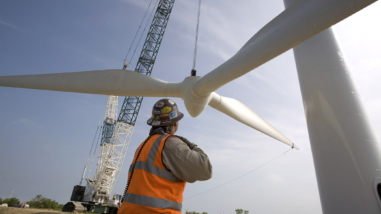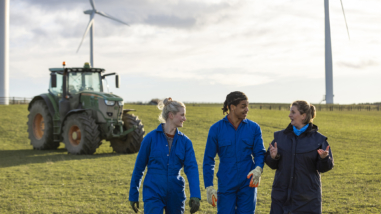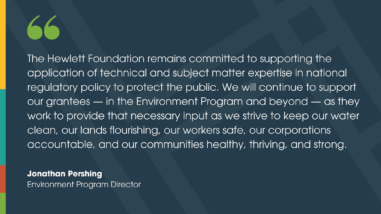Western Organization of Resource Councils Education Project
For The Energy Education Program
-
Amount$900,000
-
Program
-
Date Awarded7/11/2016
-
Term24.0 Months
-
Type of SupportGeneral Support/Program
Strategies
Overview
The Powder River Basin accounts for nearly half of all coal mined in the United States. Coal burned from the basin accounts for about 14 percent of all carbon emissions in the country. Recent studies have also shown that taxpayers receive far less than they should in payments for the coal, and, because of the downturn in the industry, three of the four companies that mine in the Powder River Basin have gone bankrupt over the last year, potentially burdening taxpayers with billions of dollars in reclamation responsibility. This renewal grant to the Western Organization of Resource Councils Education Project will support its efforts to reduce coal mining in the Powder River Basin and ensure taxpayers are not put at risk.
About the Grantee
Grantee Website
www.worc.org
Address
220 South 27th Street Suite B, Billings, MT, 59101-4106, United States
Grants to this Grantee
for general operating support
Formed in 1989, the WORC Education Project is a 501(c)(3) organization supporting the educational and charitable activities of the Western Organization of Resource Councils. Through community organizing, this regional network of organizations builds community leadership to protect clean air, water, and public health; reduce emissions of greenhouse gasses; ensure full reclamation and a fair return to taxpayers; and protect the rights of local residents, who often have little control over development on their land or next door. (Substrategy: Landscape-Scale Connectivity)
for general operating support
Formed in 1989, the WORC Education Project is a 501(c)(3) organization supporting the educational and charitable activities of the Western Organization of Resource Councils. This regional network of community-based organizations builds grassroots leadership through community organizing, to protect clean air, water, and public health; reduce emissions of greenhouse gasses; ensure full reclamation and a fair return to taxpayers; and protect the rights of local residents, who often have little control over development on their land or next door. (Substrategy: Advance Conservation Protections)



